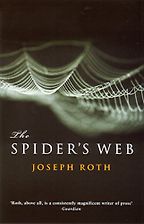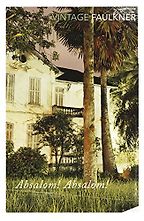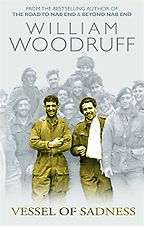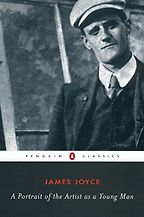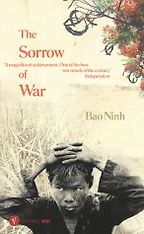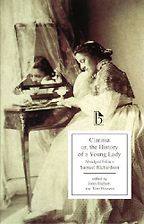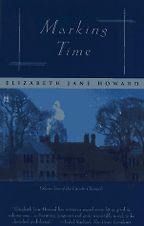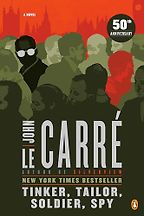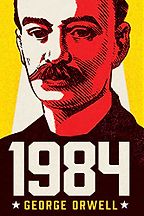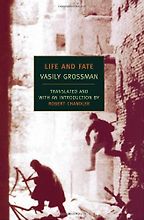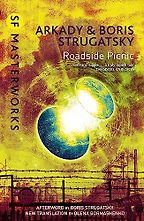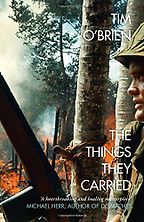Novels Recommended by Historians
Last updated: September 27, 2025
History books seek to explain and analyse the past with objectivity, but novels (or plays) written at the time show what an individual actually living through the period experienced, thought about and was preoccupied with. Hence, the assertion by Peter Frankopan, Professor of Global History at the University of Oxford, that, “You learn much more about Russia before the revolution by reading The Cherry Orchard than you will by studying the tsar and his land reforms or other decisions made in St Petersburg by the leadership.”
Here, we've listed all of the works of fiction that have been recommended by historians interviewed on Five Books. Overall, the most recommended book in our history section is in fact a novel: Life and Fate by Vasily Grossman. A Soviet journalist, Grossman witnessed the nightmare of both the German invasion of Russia during World War II and the Holocaust. The Vietnam War and the American Civil War have also attracted a number of fiction recommendations. Perhaps there is something about the horror of war that fiction is particularly suited to capturing.
“The Spider’s Web was Roth’s first novel. Far more people know his nostalgic work, The Radetzky March, about the late Habsburg Empire. But I think this earlier novel, which was first serialised in a newspaper at the very beginning of the 1920s, is extremely insightful, even prophetic in a way.” Read more...
The best books on The Weimar Republic
Robert Gerwarth, Historian
“It’s an emotionally powerful book about race in the South. The other books that I’ve recommended are straightforward. William Faulkner is something else. Faulkner gives you nightmares, he gets inside your psyche and presents the terrors of the South. And he does it in such an interesting way.” Read more...
The best books on The American Civil War
Drew Gilpin Faust, Historian
“This book is a mini-classic that is neglected. It gives a very good feel about what it was like to be on the Italian campaign, but it also gives a good feel about war. It is specific to Anzio, absolutely. There is a moment when they’re back in Capri and recovering before going off again. It has a sense of place. But, at the same time—and this is really the point about much war literature—it’s about what it reflects of war more generally. And this book does that.” Read more...
The Best Military History Books
Hew Strachan, Military Historians & Veteran
“It was a great moment in Russian history. So, as a kind of period piece that captures Russia in the late 19th, early 20th century, it’s the most poignant text I’ve ever read…You learn much more about Russia before the revolution by reading The Cherry Orchard than you will by studying the tsar and his land reforms or other decisions made in St Petersburg by the leadership.” Read more...
Peter Frankopan, Historian
“Irish intellectual life is deeply indebted to its literary culture…Joyce’s depiction is one of Ireland in the aftermath of the fall of Parnell. At the start of the 1890s, much of Ireland glimpsed the prospect of national unity based around Parnell himself, embodying a national project, whilst offering credible leadership. This, as the Portrait reflects, fell apart under the weight of sexual scandal and ensuing religious polarities. One can see all the characters participating in the Christmas dinner scene as representing different strands of contemporary Irish opinion.” Read more...
The best books on Modern Irish History
Richard Bourke, Historian
“At the time it came out, in the 1990s, the North Vietnamese had been stereotyped as robotic killers and fanatic communists. The Sorrow of War was a revelation for anyone who wanted to hear the other side. Kien, the protagonist, is a soldier with the North Vietnamese Army. He is a sensitive, sorrowful soul, caught up in these terrible, terrible events.” Read more...
Sherry Buchanan, Journalist
“It’s probably the most influential novel of the 18th century. The mid-18th century is when the novel was invented, so it’s possibly the most influential novel ever written in English, because it influences everyone who comes afterwards, from Henry Fielding to Jane Austen onwards.” Read more...
The best books on The 18th Century Sexual Revolution
Faramerz Dabhoiwala, Historian
“I love the Cazalet books, and Marking Time is part of that series. I also loved the TV adaptation, which only ran for one series but was fabulously filmed and acted. This is the best book in the series. War is coming, and the Cazalet family are plunged into the situation. Like everyone else they have to deal with the start of the war, and the youngest son goes off to fight in Dunkirk…….It is steeped in authenticity. It all feels right. All the characters feel very real, because they were based on real people. I can’t think of another book which more vividly captures the mood at that time of an upper middle-class family on the cusp of war.” Read more...
Novels and Memoirs of World War II
James Holland, Military Historians & Veteran
“As a standalone, Tinker, Tailer is an absolutely top-grade detective story. It’s all about this process I talked about, the archaeology of truth. There has been a gasping crisis or a deep fracture in how the world ought to work, Smiley comes along, and little by little he brushes away the dust, the misdirection, the obfuscation and he holds up the truth and says: This is what happened, here it is. There’s an actual ‘I expect you’re all wondering why I called you here this evening’ reveal. It’s classic. People don’t always realise that, because the theatre of espionage is very strong. But in the end that crime-investigation-solution shape is what stops you from getting lost in the book, and it’s incredibly elegantly executed, in a completely different way to The Spy Who Came in From the Cold. It meanders, it conceals, it shows you one thing but tells you another. You don’t realise that you know things. It’s just an extraordinary piece of writing, something that has been incredibly successfully adapted.” Read more...
Nick Harkaway, Novelist
Nineteen Eighty-Four
by George Orwell
🎧 Winner of an AudioFile Earphones Award for a truly exceptional audiobook
“The book looks at how order and disorder co-habit. Orwell, without ever having gone to the USSR, understood it from the outside brilliantly.” Read more...
The best books on Totalitarian Russia
Robert Service, Historian
“Life and Fate…is probably the most important work of fiction about World War II. But, in fact, it is more than just a fiction because it is based on very close reporting from his time with the soldiers. It is a deliberate act of literary homage to Tolstoy as one can see in the title. It is definitely the War and Peace of the 20th century.” Read more...
The best books on World War II
Antony Beevor, Military Historians & Veteran
“Roadside Picnic is the single greatest work of sci-fi fiction, written by these two scientist brothers. Roadside Picnic is, among other things, a wonderful indirect metaphorical reflection on everything about Soviet Russia – from its terrible scrappy industrial texture, through to the way that the possibility of miracles kept bobbing on through the wasteland like will-o’-the-wisps. It’s about the way that industrial grime and decay always coincided with promises that at any moment things could be radiantly wonderful.” Read more...
The best books on 20th Century Russia
Francis Spufford, Historian
“It’s short stories about Vietnam written by a guy who was there as a very young man. And it really is a book about what it is like to be a regular ordinary American teenager and suddenly find yourself neck-deep in a jungle fighting a war that you neither understand nor care about. Killing people that are so different from you with no opportunity to understand or appreciate their culture. He presents you with a gang of teenagers carrying 60 or 70 pounds of equipment in 40-plus centigrade temperatures with malaria, fighting insects, fighting monsoons, fighting conscience, fighting political ideology, fighting religious ideas and their own code of ethics and morals even more than they are fighting what they have been told is the common enemy. And I think the way that he does that with such humanity and such heart is outstanding. And again it is a book I have read probably three times.” Read more...
The best books on Human Dramas
R J Ellory, Novelist
